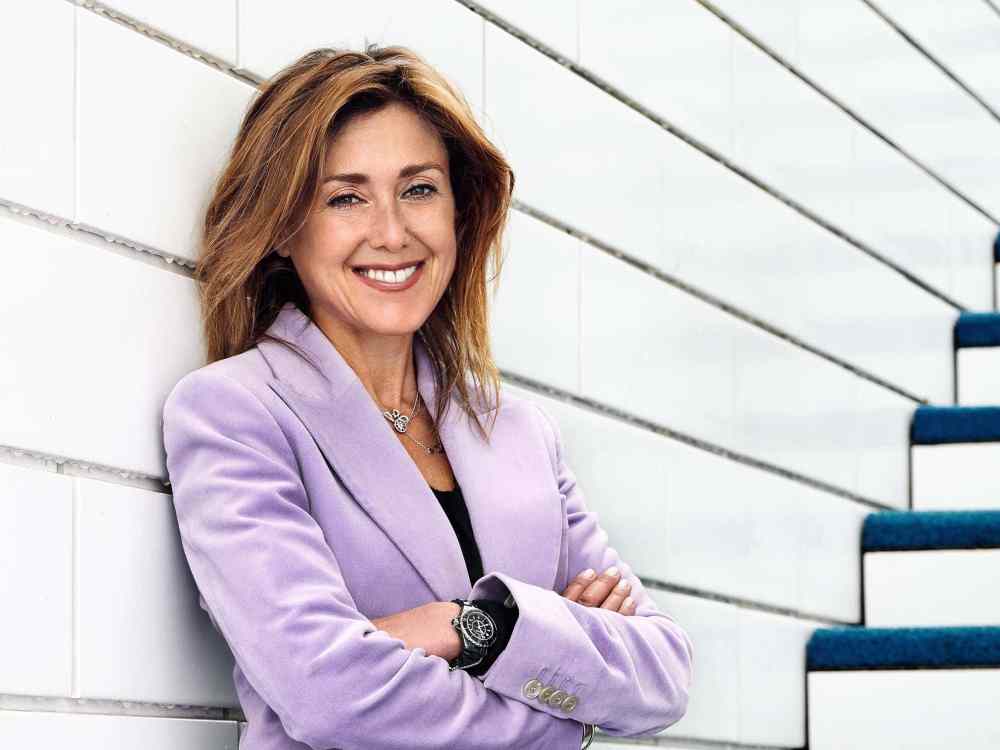Many leaders, particularly women, tend to hide their emotions in attempt to look strong and keep things at arm’s length. Not Julia Goldin.
The global chief product and marketing officer at Lego Group says being an emotional leader is an asset to her management style and helps her connect and communicate powerfully and effectively with her 1,800-person team.
“I really believe that it’s important to be yourself,” Goldin said in a recent interview with Know Your Value founder and “Morning Joe” co-host Mika Brzezinski. “I don’t hide away from how I feel about things. And if I feel really upset about something, I will voice it. If I’m feeling really happy about something, I will voice it as well. But for me being an emotional leader is also being sensitive to people and their emotions.”
She continued, “20 years ago, people would say ‘you’re too emotional, you react too emotionally to things,’ but I don’t think that there’s a right or wrong way to lead … For me, it really works.”
Goldin, 52, started at Lego Group in 2014 and previously was global chief marketing officer at Revlon and before that spent 13 years with the Coca-Cola Company, where she held several senior global and regional marketing roles.
She chatted with Brzezinski about her leadership style, navigating her team through Covid-19, her career journey and more.
Below is their conversation, which has been edited for brevity and clarity:
Mika Brzezinski: I just kicked off a huge campaign with Forbes magazine, celebrating 50 women over 50. I’m wondering if you ever envisioned or planned your career after the age of 50 in your mind when you were younger.
Julia Goldin: I thought 50 was old when I was young … But what I’m finding now is 50 is the new 40 or the new 30. I feel very vibrant. I don’t feel old. I think I can bring more to the table now than I ever have before …

Brzezinski: It’s so funny, almost every woman that I’ve interviewed, especially the women who made the list, they had the same answer. It was white space in their brains, like it was just not something that came to their mind at all. They often thought about their 20s, 30s, 40s, and having kids and trying to plan — but not after 50. And I agree with you. I feel like I have so much more energy. Like my kids are grown and I’m sitting here doing twice as much as I used to do because I can.
I’m curious, is there anything about your background, including being an immigrant, that prepared you for the job that you have today and to be able to adapt to new situations in the workplace?
Goldin: … I never planned for any of it because when I was 13, I said the world was completely closed to me [when I was growing up in St. Petersburg, Russia]. I didn’t think I would have any opportunities.
… I came to the states [when I was 13 years old], and we were super poor. So, I didn’t really think that I would have an opportunity to be on the world stage, meaning having a global job, running a big global brand, being able to impact so many different things. So, I didn’t plan for it.
Every step of the way, I came as an underdog, and I think this was the kind of immigrant mindset, you know, having gone through being really poor, being marginalized, misunderstood, feeling like the stupidest person in the room because I didn’t speak the language. I never came into anything as a sort of designated winner, as a person who was supposed to be getting the job, who was supposed to be getting into a top school.
… I think I kind of have this resilience in me to have to fight in order to survive, but to thrive and to find my way. I’m super adaptable to change but also, I need change. I like change …
One of the things that now we talk so much about is diversity, inclusivity and being able to appreciate differences. I’ve actually experienced that a lot, during childhood and the immigration process. Secondly, because I was always putting myself into different situations, in different cultures — I would sort of thrive in that. I can really appreciate how to see and understand the differences that different people are bringing …

Brzezinski: You know, my parents were immigrants from Poland and what was Czechoslovakia. They have a resilience that they taught me. And I noticed here in America, there was such an emphasis on having a nice house and everything being perfect. And my parents didn’t care about any of that. They were constantly focused because they fought so hard to get here.
Going back to what you call your “emotional leadership” style, I call it passion. I’m very passionate about what I’m doing, and I feel it. I feel like showing that is not a bad thing. And I sometimes think women have been a little hesitant about showing their feelings.
Goldin: I think it’s also OK to be sensitive, because if you are sensitive, then you might be sensitive to how your words might affect others.













